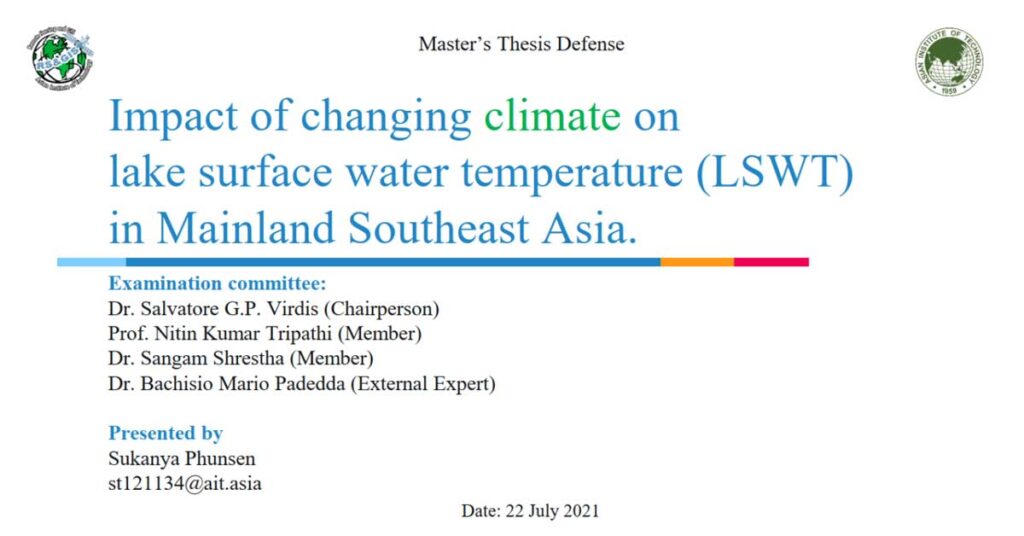[22 July 2021] Ms. Sukanya Phunsen has successfully defended her master thesis titled IMPACT OF CHANGING CLIMATE ON LAKE SURFACE WATER TEMPERATURE (LSWT) IN MAINLAND SOUTHEAST ASIA at AIT. The following is the abstract of the thesis.
Abstract
Lake surface water temperature (LSWT) is an essential component in lake ecosystem. It has been shown that throughout the previous century, LSWT followed an increasing trend with significant repercussions on the regional environment. To regulate and enhance the regional ecological environment, it is necessary to grasp the fundamental explanation for this occurrence. In this study, LSWT estimated across 103 lakes on mainland Southeast Asia using MODIS/Terra in the period of almost 20 years in both
daytime and nighttime. This study has generated the correlation between LSWT and various climatic variables. In addition, the contribution of air temperature, solar radiation, cloud cover, and wind speed on LSWT was used to examine the LSWT. The change of climate in Southeast Asia for 2000-2020 period has been impacting on LSWT particularly on air temperature in both daytime and nighttime. The research has generated the LSWT prediction by using climatic variables from CORDEX historical and RCP 8.5 which has used in the most extreme scenario. The results suggested that the warming trend in both MLR and LSTM can help to reveal the LSWT future trends. However, LSTM performed a strong predictive than MLR. The LSTM results has identified the prediction warming rate of LSWT. In daytime, the mean warming rate was 0.0120 °C/year and the overall mean change rate was 0.010 °C/ year. While, in nighttime, the mean warming rate was 0.009°C/year and the overall mean change rate was 0.007 °C/ year.
